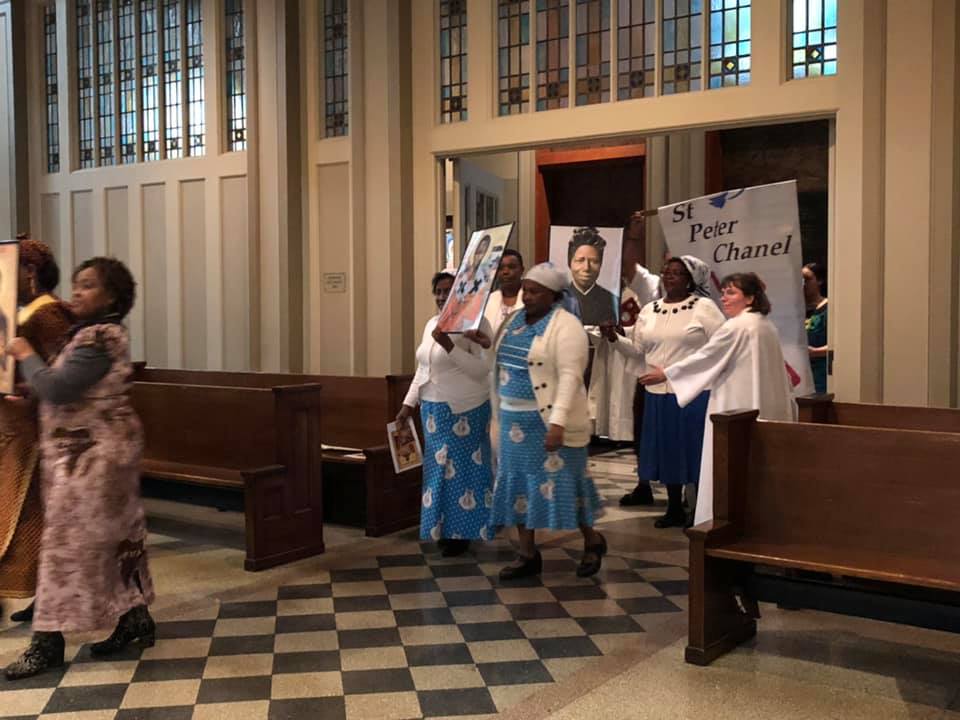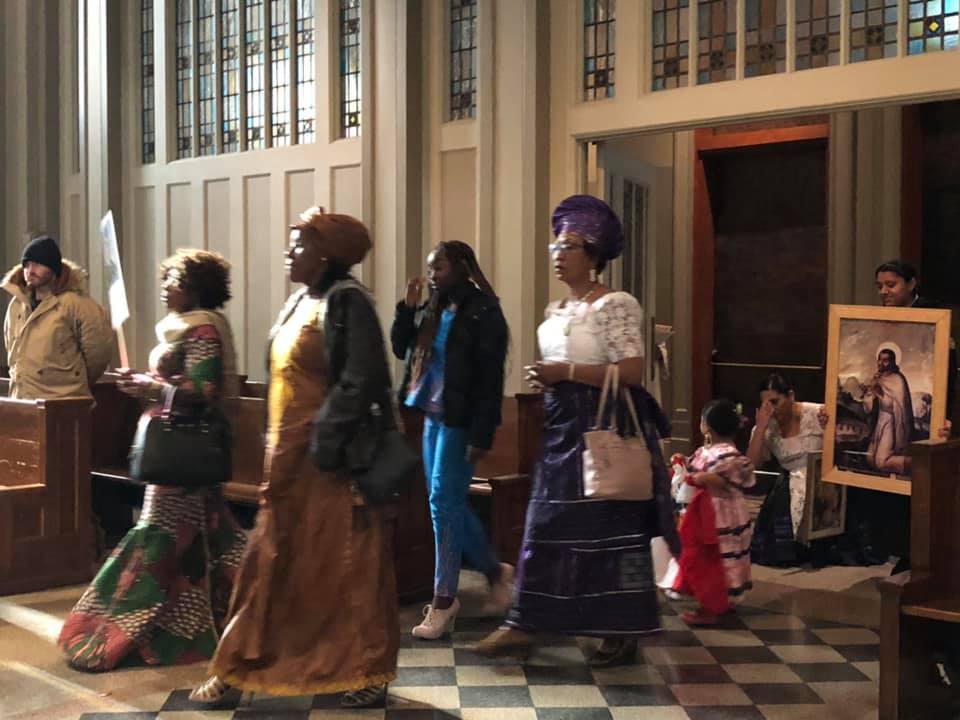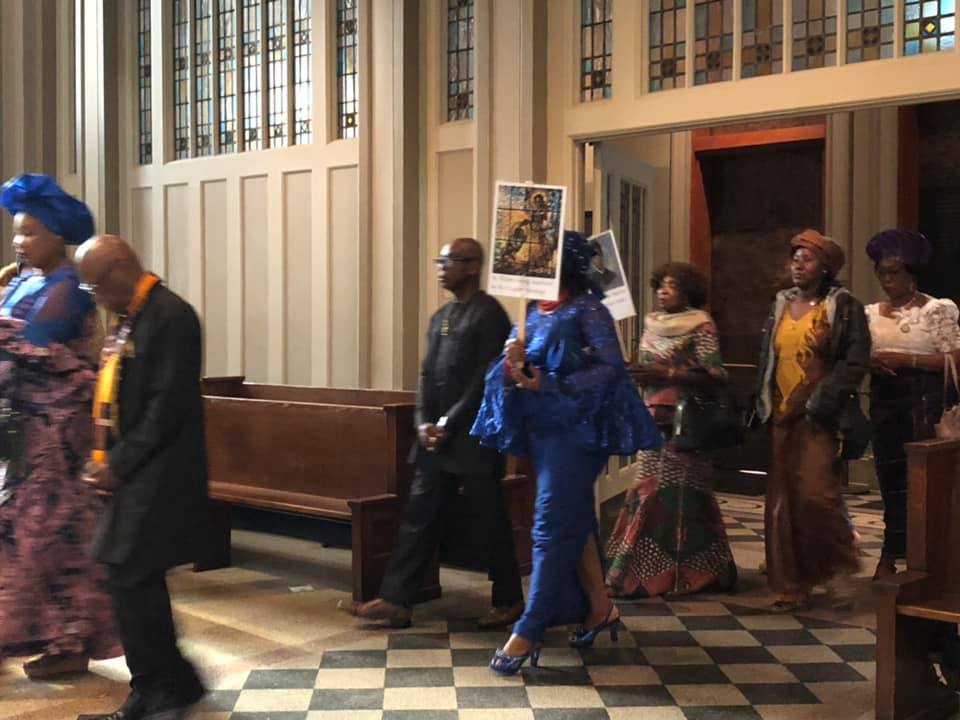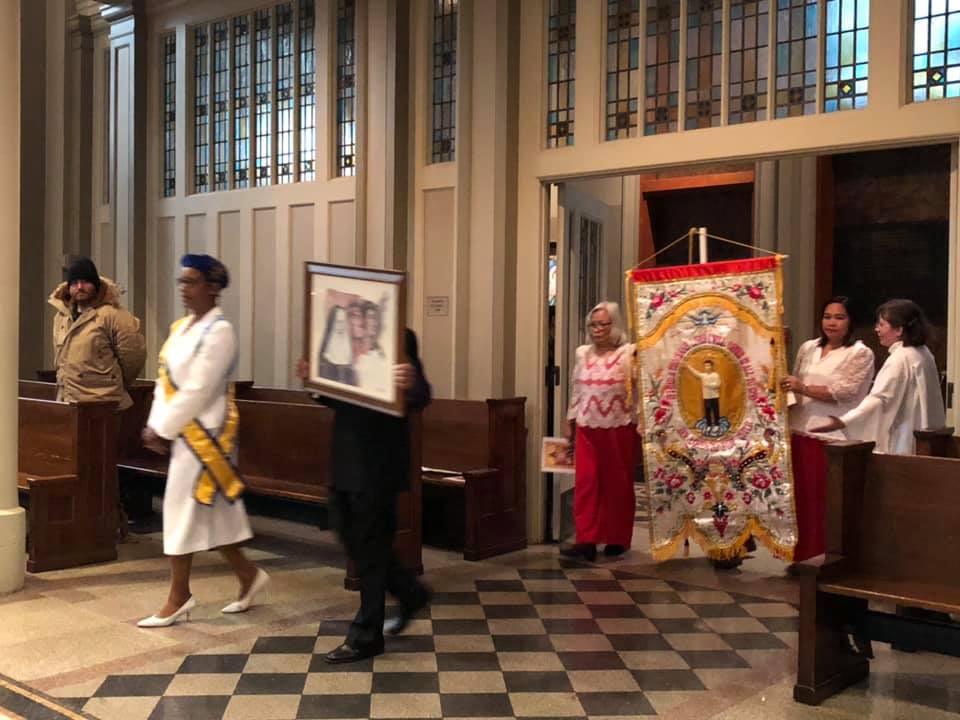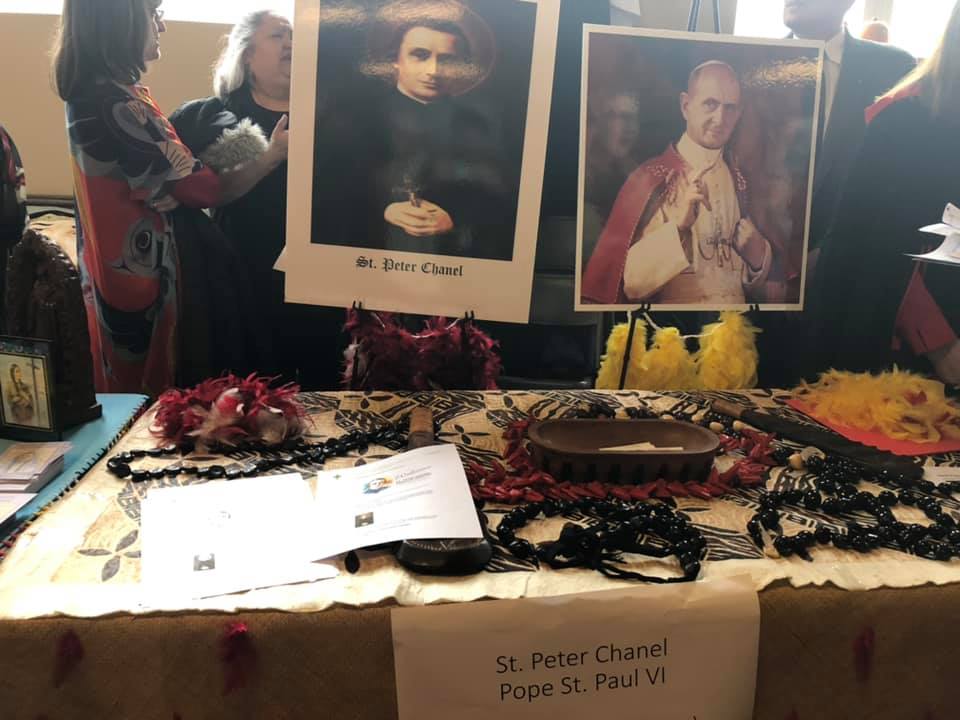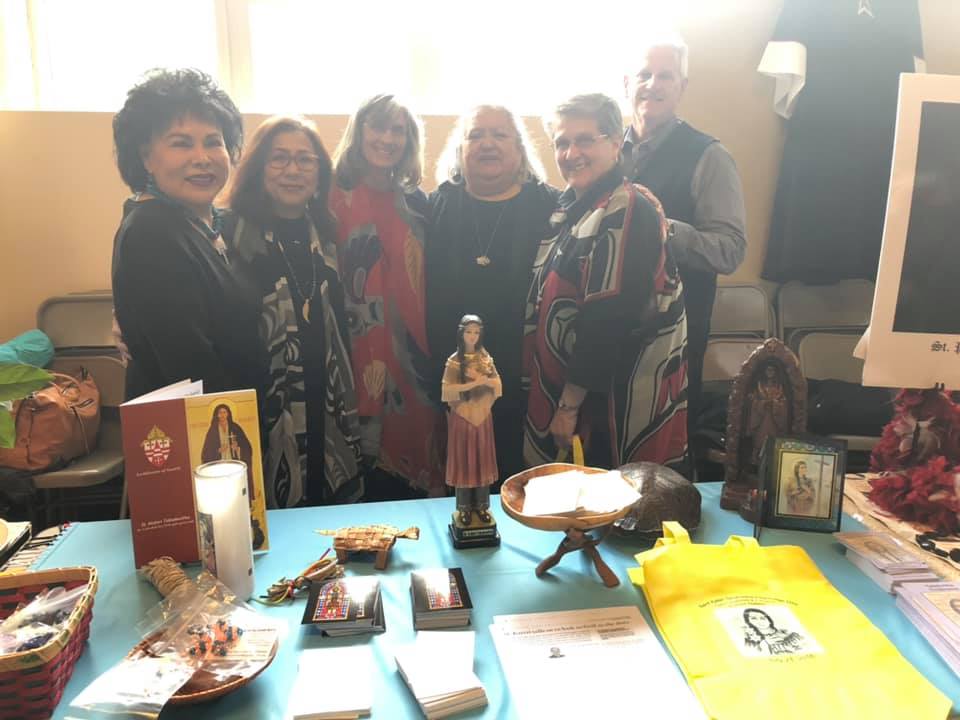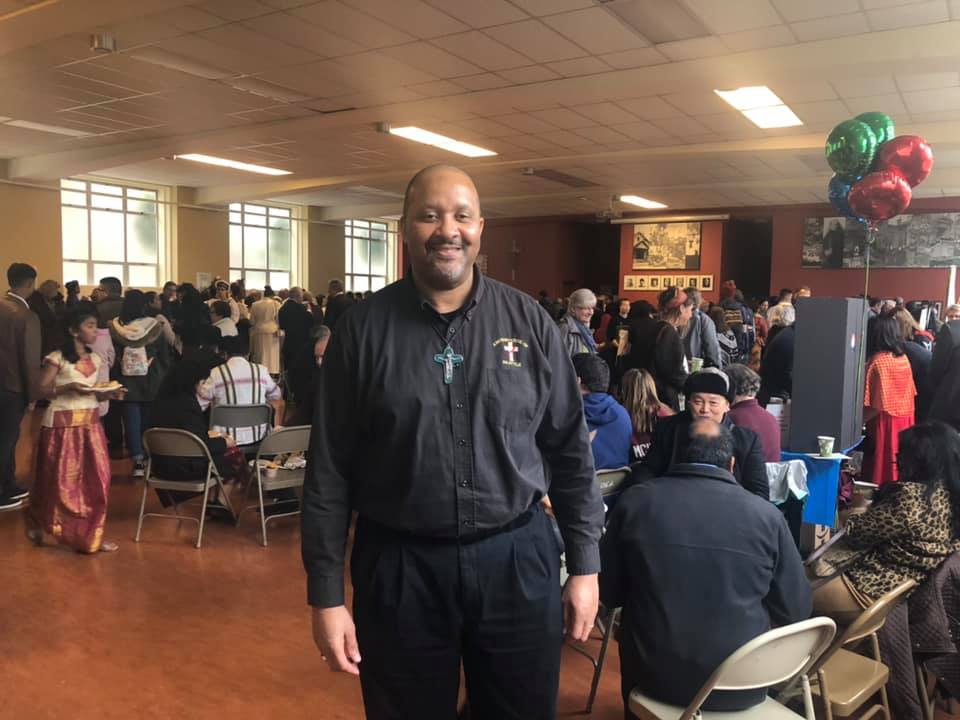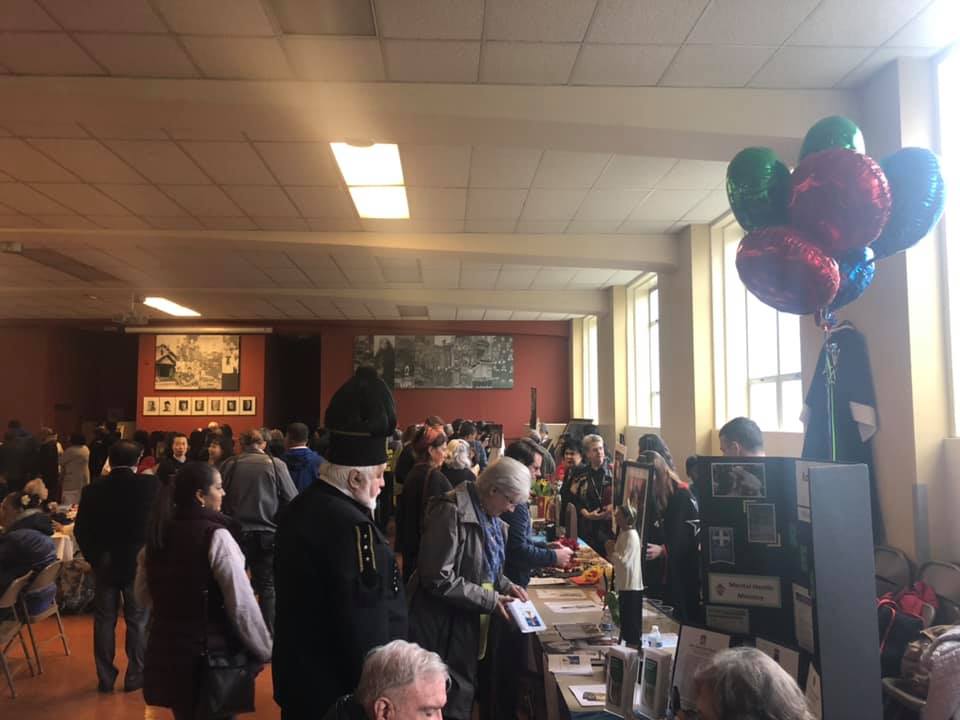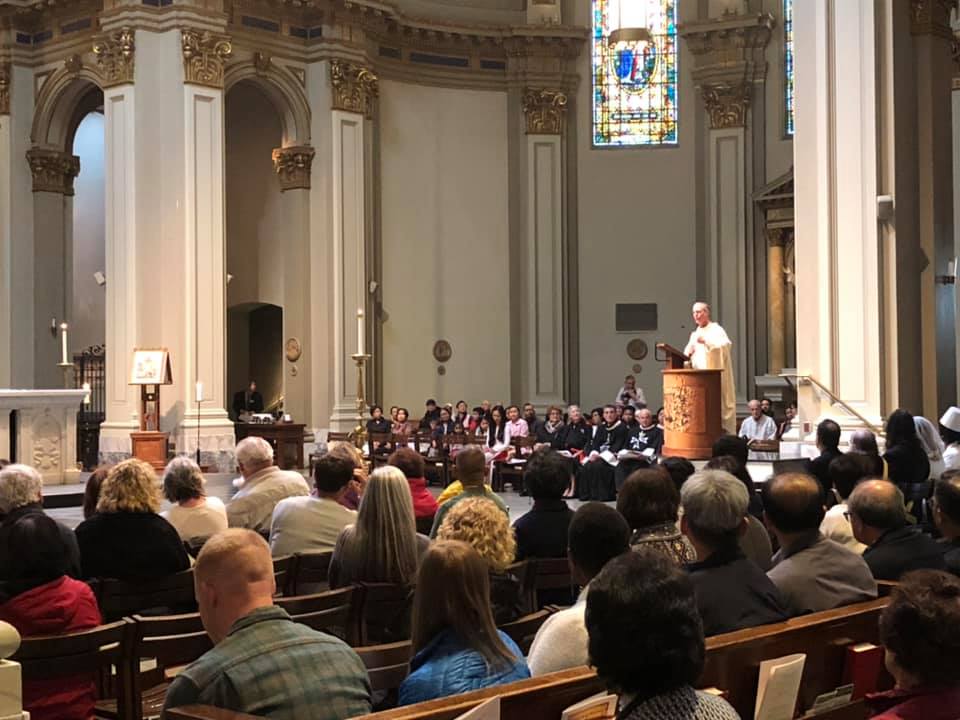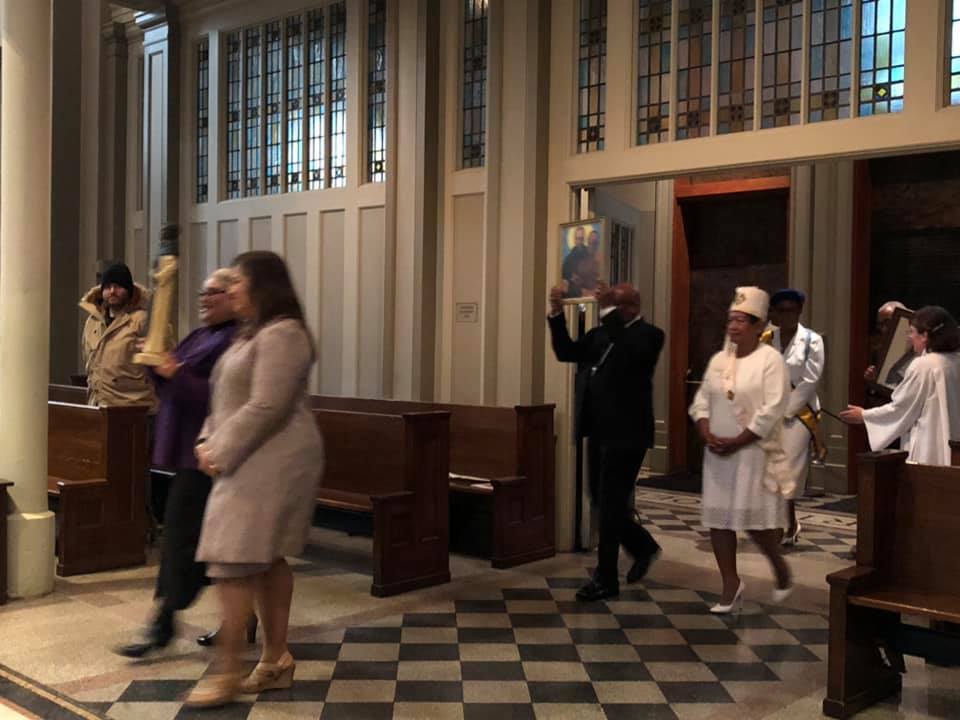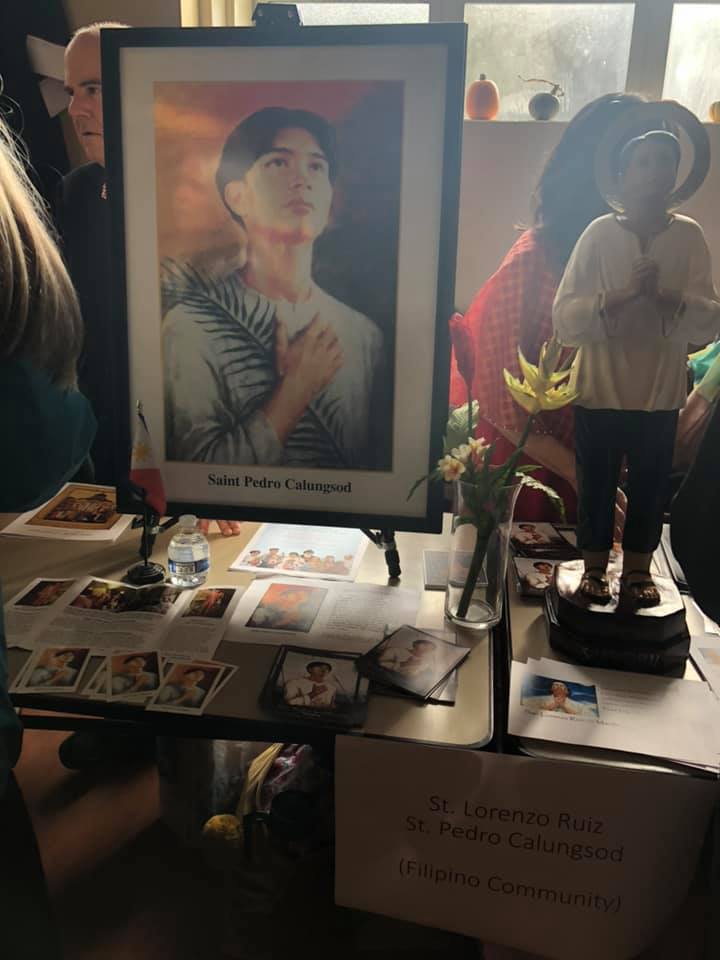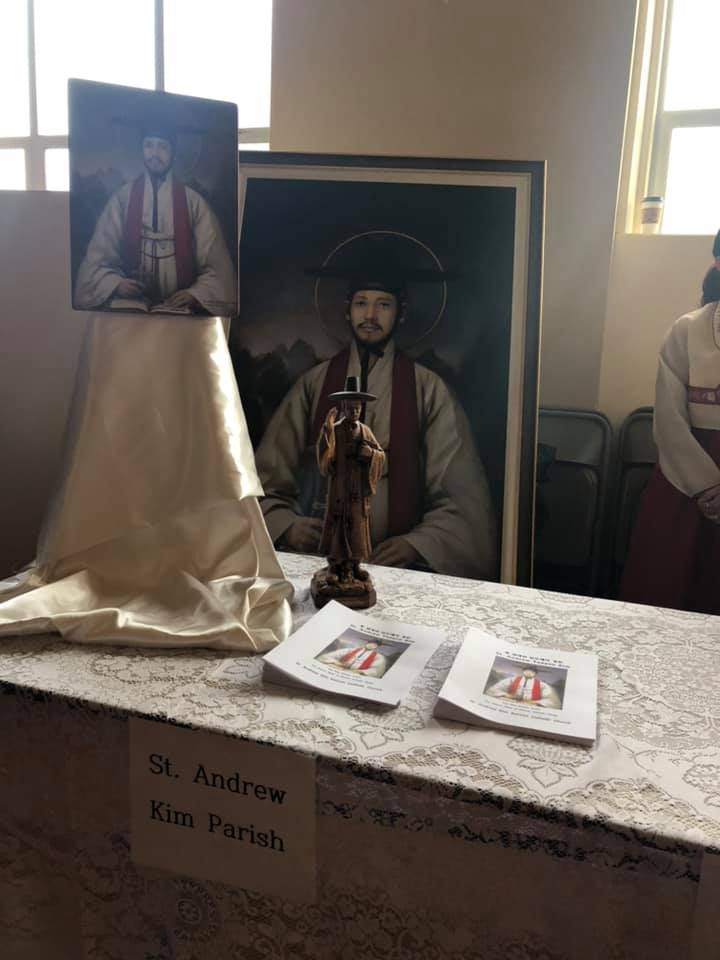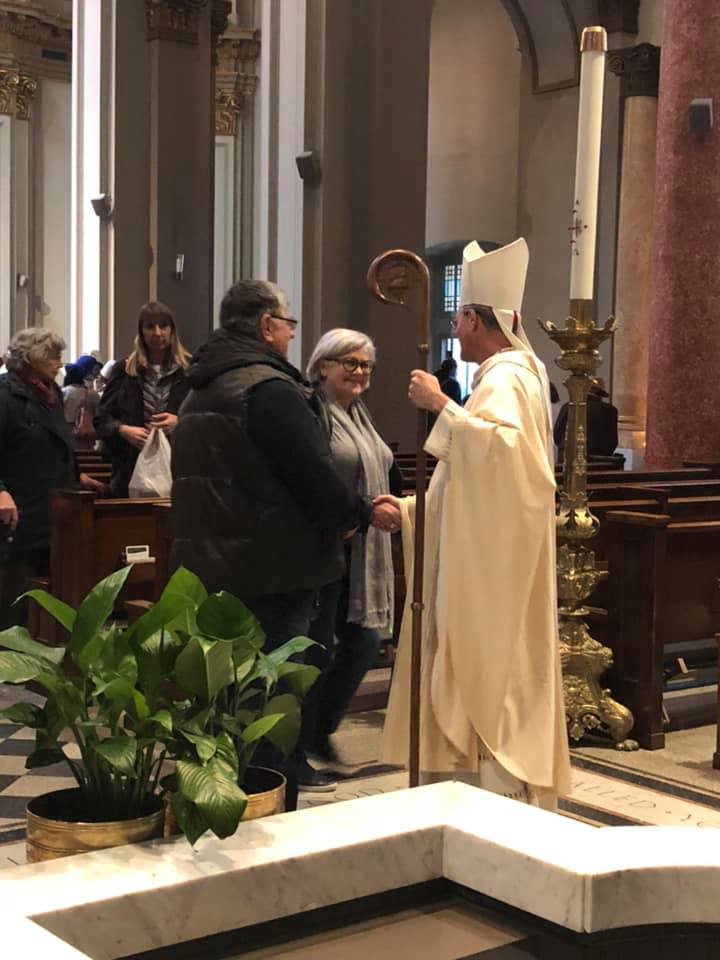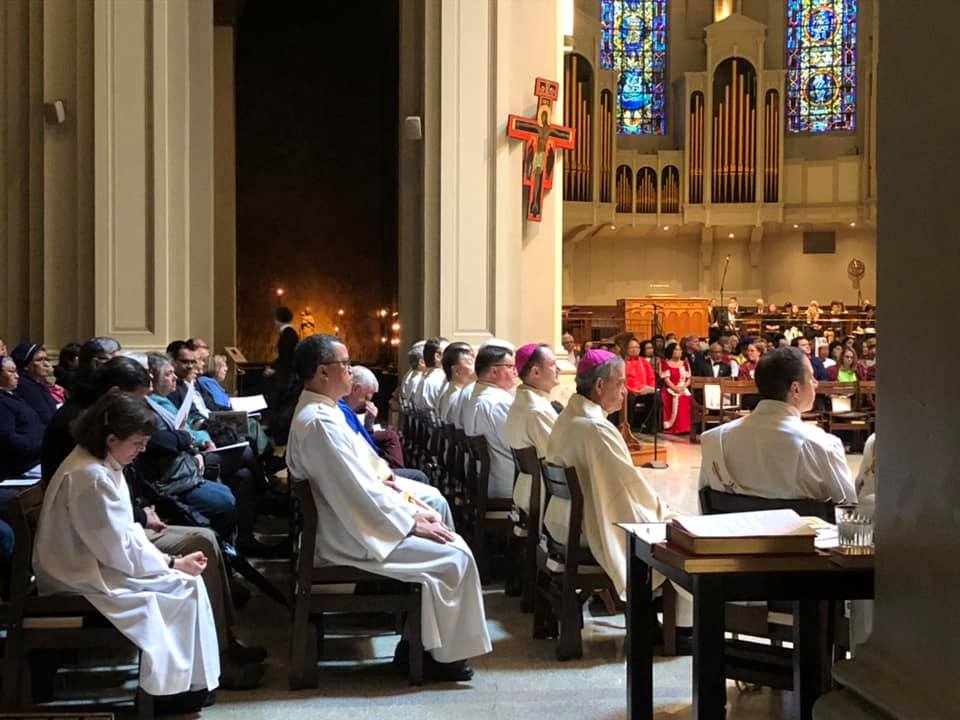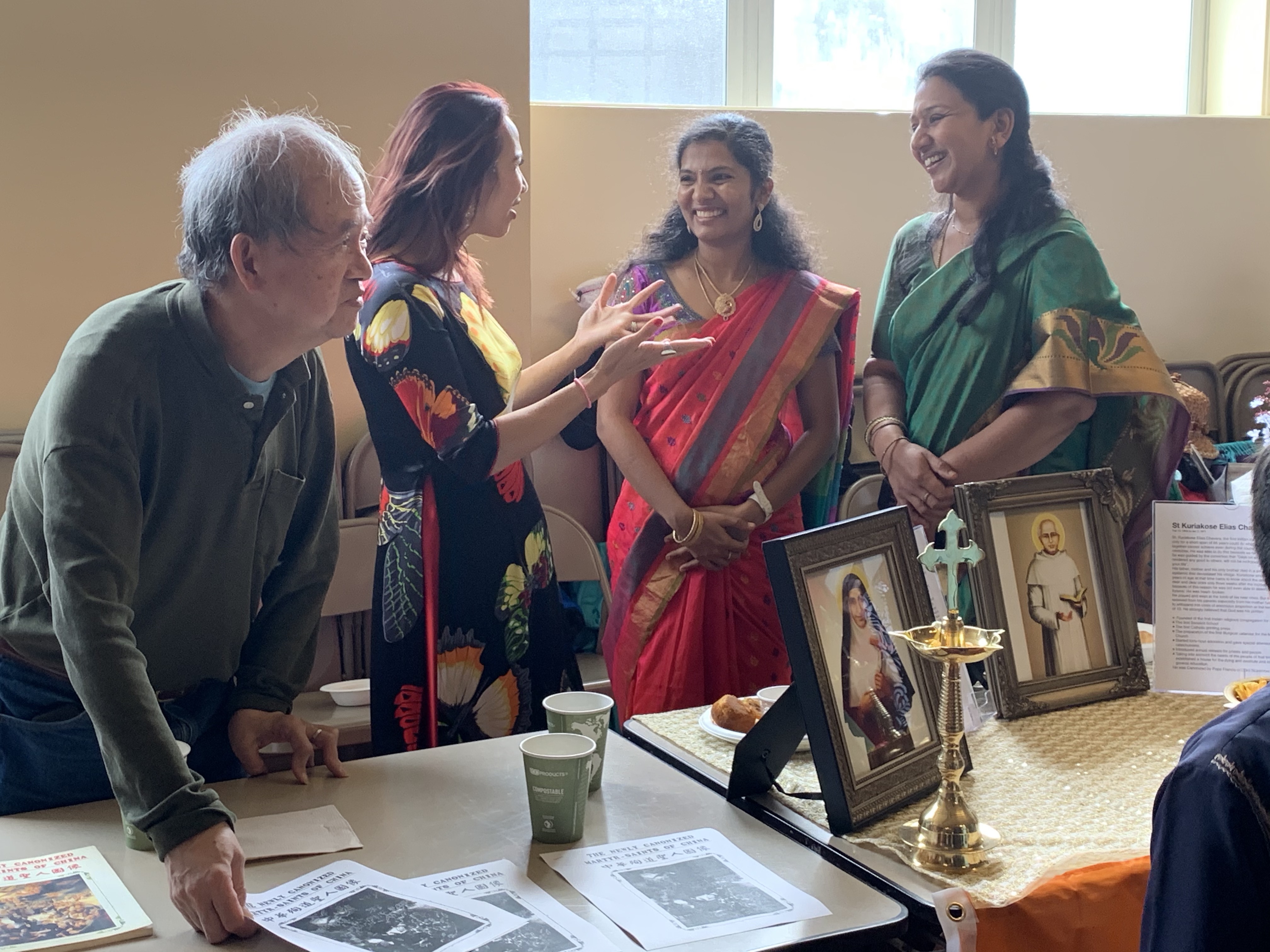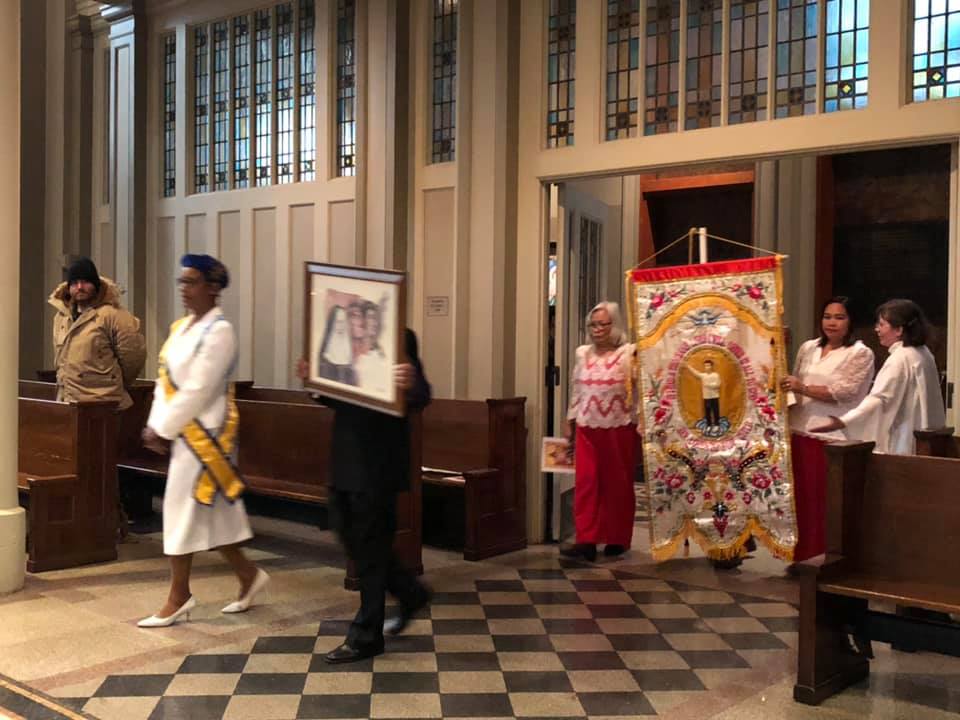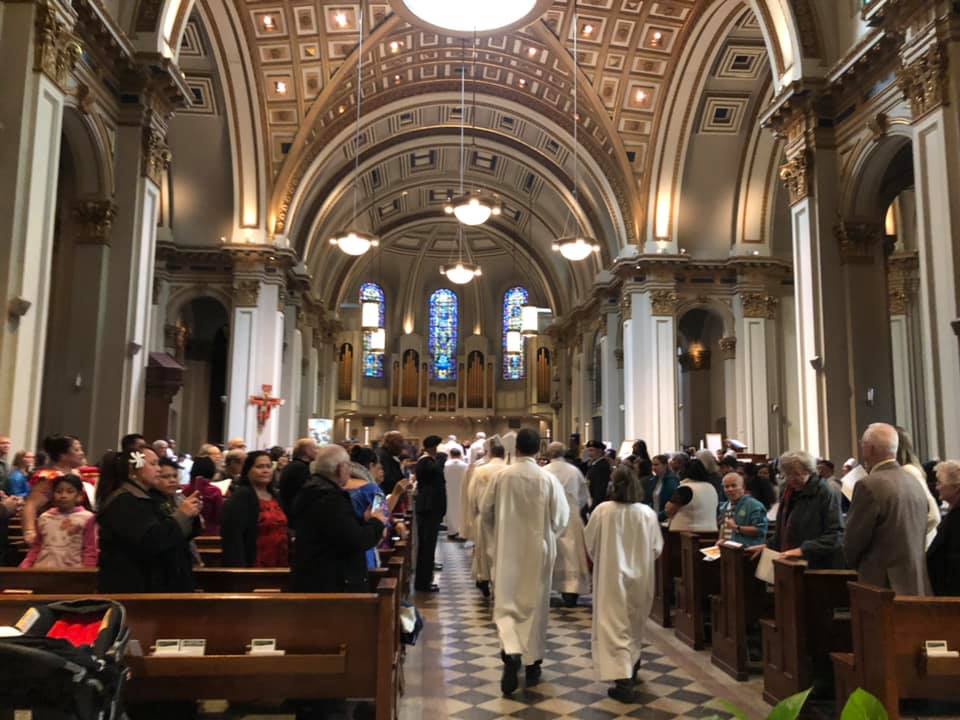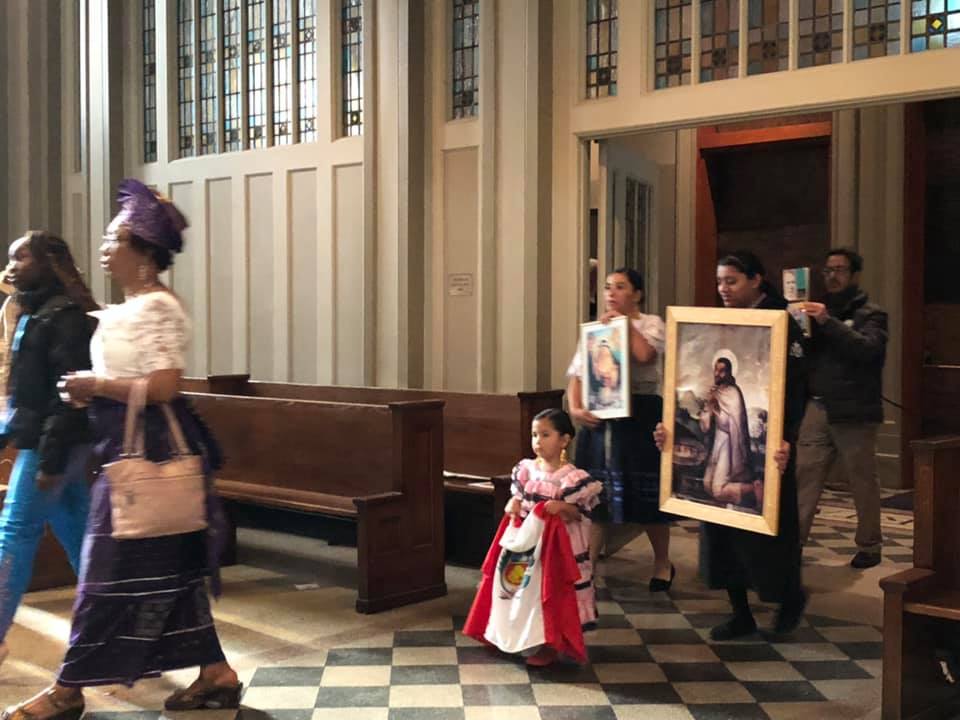We had 21 of our faith communities represented at St. James Cathedral today for the celebration of “Our Saints.” We began at 10:00 with Eucharistic Adoration. Then, the procession for Mass began at 11:00, including representatives from many of our cultural communities who carried images of saints from the countries.
Special thanks Deacon Carl Chilo and the staff of our Archdiocesan Office of Pastoral ministries as well as the staff of St. James cathedral for coordinating this year’s celebration. Thanks go also to those who participated and prepared the food for the reception that followed.
Here are the basic components of today’s homily:
In a document from the Pontifical Council for Culture, dated May 23, 1999, they state that the heart of every culture is its approach to the greatest mystery: the mystery of God. In essence, the saints who have gone before us and inspire us are those who so beautifully lived their love for God through selfless service of God’s people.
The document quotes St. Pope John Paul II regarding the decisive challenge of a pastoral approach to culture:
a faith that does not become culture is a faith not fully accepted, not entirely thought out and not faithfully lived.
(St. Pope John Paul II, Letter Instituting the Pontifical Council for Culture, 1982)
Finally, the Pontifical Council for Culture also observes that the culture absorbs our manner of living the faith and is in turn shaped by it.
In other words, the culture is an expression of the human family that forms and shapes it, while at the same time, the culture wields no small influence upon those living within it. But is it not interesting to note that culture, at its heart, is how we approach the great mystery of God.
We believe that the Gospel is for all people, of all times, and is therefore meant to touch and shape every culture. Jesus Christ came into the world to take on our human condition – in the flesh. Jesus entered the world to reclaim and redeem humanity, in its entirety, for each of us are created in the image and likeness of God.
I submit that our present culture is an example of one in need of more people who faithfully live the faith, so that ‘faith becomes culture’ in our time and in our place.
Saints lived holiness, not just as a personal pursuit or gain, but they strived for holiness as a response to God. The saints strove for holiness in the midst and on behalf of God’s people. Thus, not only the saint was converted, but also the people and culture around her!
My friends, each and every one of us is called to holiness. Jesus tells us in the Gospel that to be his disciple, we must take up our cross and follow him. Saints are those who learned and lived the reality of losing their life in order to discover true life. (Matthew 16:24-27)
Likewise, the Book of Revelation tells us that the Banquet of the Lamb has begun! (Revelation 19:1, 5-9) This is what we celebrate, receive, enter into in every Eucharist. Christ laid down his life for us. His self-sacrificing love calls for us to respond with the same sacrificial love. This is how the saints lived their lives, and how those same saints exhort us to do the same.
We advance in conversion and holiness of life by God’s grace. We advance by responding to God’s love and the call to follow Jesus. Our love of God must be lived concretely in our service of God’s people.
Let us fully accept and embrace our faith in Jesus Christ – as a courageous witness before others.
Let us give full and conscious consideration to the demands of our faith.
Mostly, let us live our faith faithfully in the world today, that the one and same faith may become our culture!
Peace.
4
